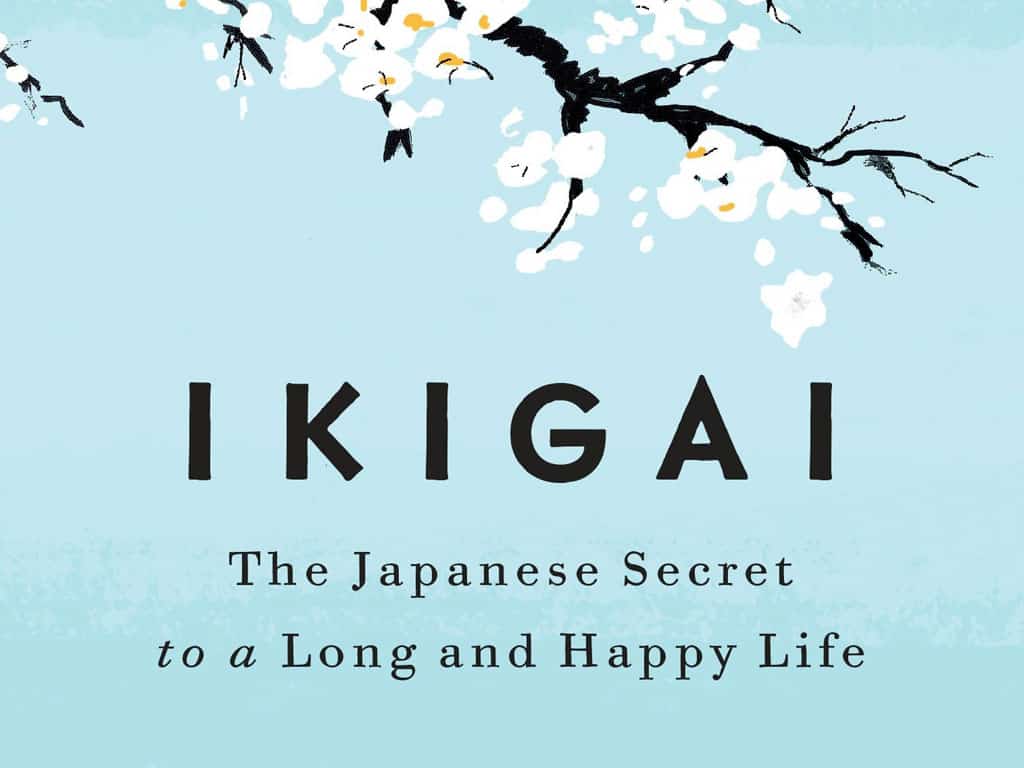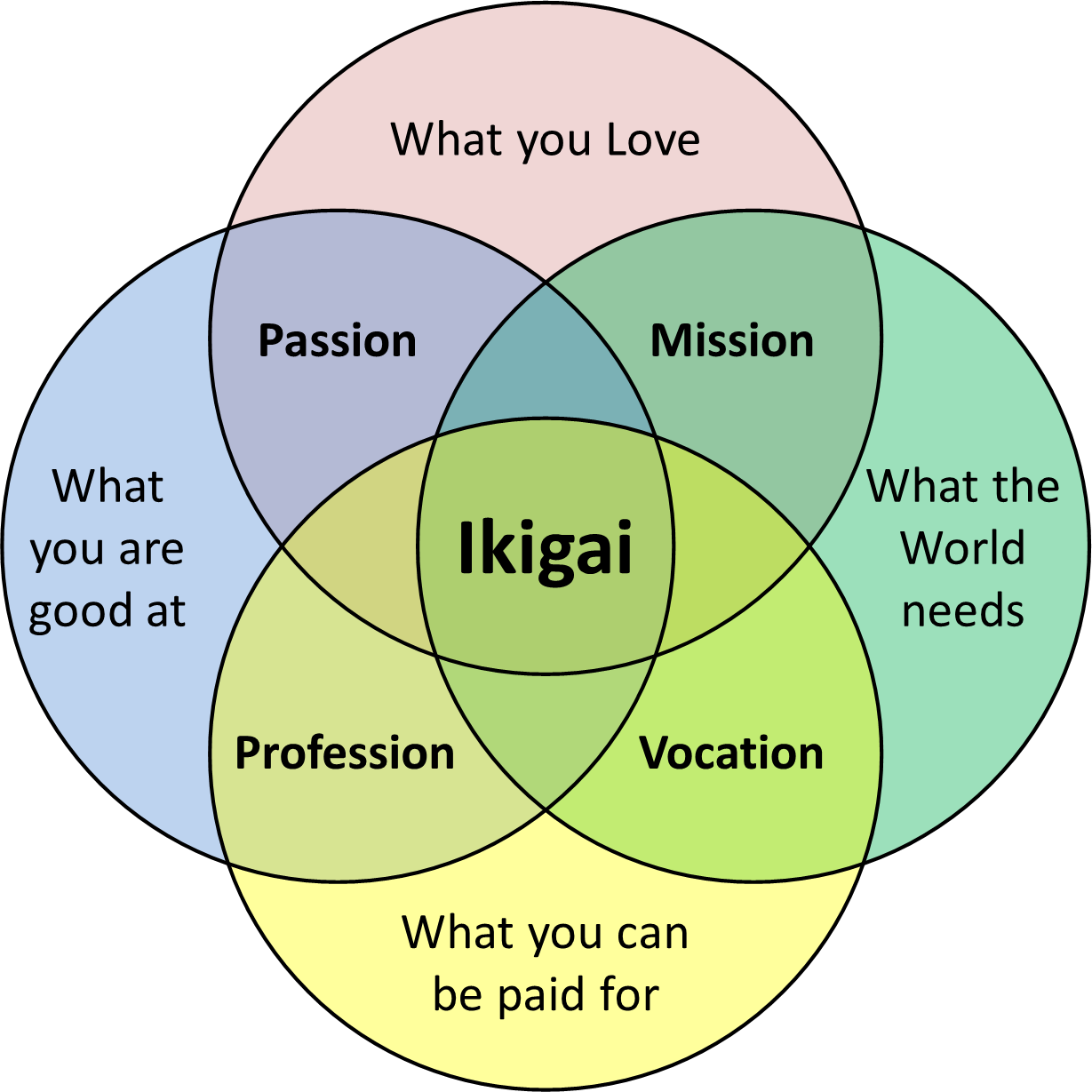Written by Héctor García and Francesc Miralles, two authors of internationally bestselling books, IKIGAI: The Japanese Secret to a Long and Happy Life is an inspiring and comforting book that gives life-changing advice and tools to live a longer and purposeful life.
The book is about a case study done about the people on the island of Okinawa, which is the home of the most number of centenarians. Apart from the simple and healthy diets, subtropical climate, and purity of the environment, they would believe Ikigai as one of the key factors for their longevity.
Ikigai is a beautifully nuaunced concept, simply translates as ‘the happiness of always being busy’. According to the Japanese, everyone has an ikigai and it is the reason why we get up from the bed. Many philosophers, psychologists and entrepreneurs have their definition for ikigai. Mark Winn, a business coach and an entrepreneur summarizes this concept into a Venn diagram as follows; the intersection of ‘What you love’, ‘What you are good at’, ‘What you can be paid for’ and ‘What the world needs’ is the ikigai.
“The life you live is equally or more important for longevity,”
This phrase was said by Alexander Imich in an interview after being added to Guinness World Records as the world’s oldest living man at age 111 in 2014. So, I believe that it is an important concept to understand the relationship between the longevity of a person and discovering our life’s mission. Here are some theories and tips given in the text which will help a person to find their purpose.
Logotherapy
Victor Frankl’s logotherapy is a psychotherapy based on the belief of the search for meaning even amidst misery, is a potential solution to suffering. Different from modern conventional psychoanalysis, logotherapy ‘helps you find reasons to live’.
The process of logotherapy can be summarized into these five steps.
- A person feels empty, frustrated or anxious.
- The therapist shows him that what he is feeling is desire to have a meaningful life.
- The patient discovers his life’s purpose. (at a particular point in time.)
- Of his own free will, the patient decides to accept or reject that destiny.
- This newfound passion for life helps him overcome obstacles and sorrows.
(Quoted from the book)
This simply gives the meaning of fighting for yourself to live your life with existential fuel. Every person has a unique reason to be born in this world. We have to discover our own uniqueness. Emotions such as worry, fear and anxiety would block this path of discovery. But with determination and humor, we can reduce all the negativity and focus on the brighter side. After realizing the worth of our ownself, it is our decision to make whether to fall on either side of the world; noble or terrible.
Morita Therapy
Shoma Morita, a psychologist and Zen Buddhist, who lived in Japan created this purpose-centered therapy leaving a spiritual remark in Japan. This therapy focuses on teaching patients to accept their emotions without trying to control them, since their feelings will change as a result of their actions.
The three basic principles in Morita Therapy are as follows.
- Accept our feelings. We should not suppress our obsessive feelings that will only led it to become more intense. Instead, we should accept and let it flow.
- Do what we should be doing. Recovery will come to us on its own. So, it is ideal to focus on the present moment.
- Discover our life’s purpose. Even though we cannot control our emotions, we can take charge of our actions. So, we are dared to find our purpose in life.
Logotherapy and Morita therapy have successfully helped many patients to recover from psychological disorders. Both centered on teaching the patients to find their purpose in life. Once it is found, courage and happiness will lead to longevity. Thereupon, to live a long and happy life, all you have to do is to ‘find a reason to jump out of your bed each morning’: find your IKIGAI!
Image Courtesies
Featured Image: http://bitly.ws/KJn5
Image 1: http://bitly.ws/KJnw


